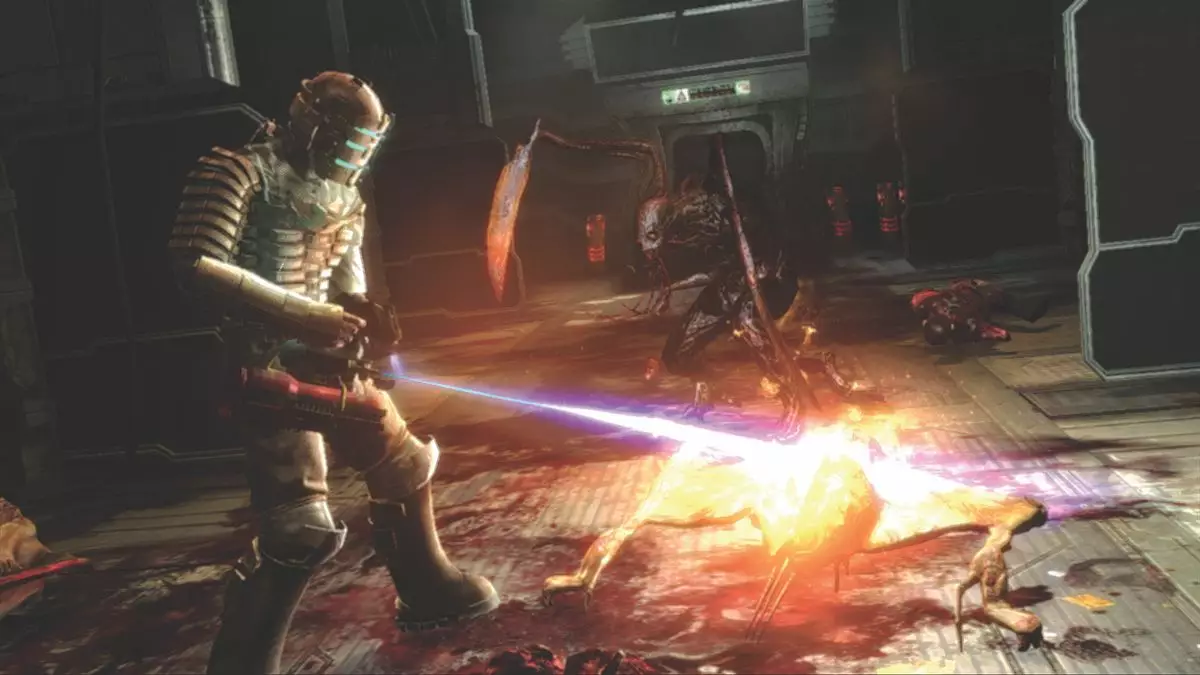The Dead Space trilogy stands as a groundbreaking achievement in the horror video game genre, captivating audiences with its tense atmosphere and intricate storytelling. Developed by EA’s Visceral Games, the series has etched itself into the annals of gaming history, garnering critical acclaim and a dedicated fan base. Despite the recent success of the remake, discussions about a sequel, specifically Dead Space 4, have been met with resistance from EA, much to the disappointment of the original creators.
In a recent conversation with Dan Allen Gaming shared on ResetEra, significant figures from the game’s inception, including Glen Schofield, Christopher Stone, and Bret Robbins, revealed their attempts to partner with EA for another installment. Their proposal, pitched earlier this year, was swiftly dismissed, with EA indicating a lack of current interest. As Glen Schofield noted, “We tried Dead Space 4… they just said ‘we’re not interested right now.'” This sentiment echoes broader concerns within the industry regarding investment in new ideas and risks.
As the developers articulated, the current gaming landscape is apprehensive. Stone referred to the industry’s reluctance to take “chances on things,” highlighting a prevailing culture where established franchises overshadow innovative concepts. The hesitance from EA underscores a more extensive trend in the industry where major publishers often prioritize franchises that guarantee high sales over experimental projects.
In contrast, the developers expressed their desire to create another Dead Space, with Schofield stating, “We’d all love to do it.” The enthusiasm among the original creators is palpable, suggesting that while EA may not share the same vision, the potential for Dead Space 4 still lingers in the hearts of those who brought it to life.
The divergence between the creative aspirations of developers and the pragmatic realities of corporate decision-making poses a significant challenge. The original creators possess a profound emotional connection to the franchise, one that they are eager to reignite. Though Schofield noted that Bret Robbins is currently engaged with other projects, the team remains hopeful for future opportunities to revisit their work. “We’ve got some ideas,” Schofield hinted, demonstrating a tenacity that aligns with the core spirit of the original games.
This sentiment resonates with many long-time fans of the series who yearn for the return of the fear-inducing atmospheric dread that defined the original Dead Space games. While the remake has reignited interest, it also raises the question of whether further entries would capture the same magic or if they would simply be a shadow of the original success.
In recent years, Schofield’s other project, The Callisto Protocol, has experienced mixed reviews, indicating that revisiting horror game elements is fraught with challenges. While it attempted to leverage similar themes, both the narrative and gameplay failed to resonate with audiences in the same way as Dead Space. The critique pointed to a poorly designed combat system, which detracted from its otherwise atmospheric experience.
This cautionary tale serves as a reminder of the fine line developers must walk between innovation and nostalgia. It highlights the importance of understanding what made the original games successful while still pushing boundaries to create something new. As fans of the franchise look toward the future, they hope for a revival that honors the essence of Dead Space while evolving the experience for a new generation.
Despite the current obstacles, the hope for Dead Space 4 remains alive among fans and creators alike. The original developers continue to champion the franchise’s potential, eager to translate their ideas into a new video game experience.
With the anticipated remakes of Dead Space 2 and 3 potentially paving the way for further engagement with the lore, EA might reconsider its stance on new titles. Ultimately, a successful revival of the series would depend not just on corporate approval but an alignment of vision among the developers, publishers, and the throngs of fans who have passionately followed the series since its inception.
In an industry where innovation often faces off against corporate caution, the future of Dead Space and its eerie corridors of terror hangs in a delicate balance, with fans and creators alike wishing for a resurgence of this iconic franchise.

